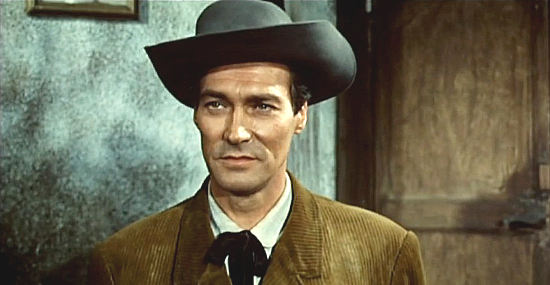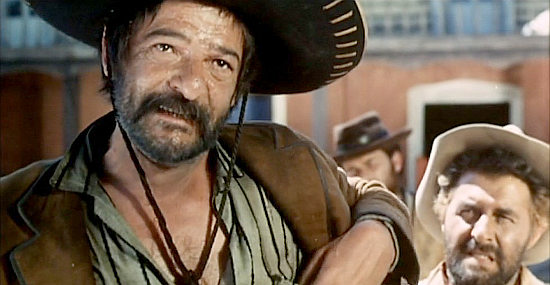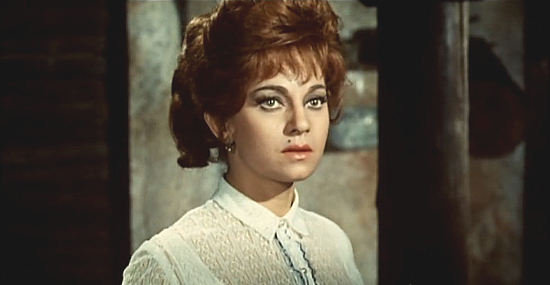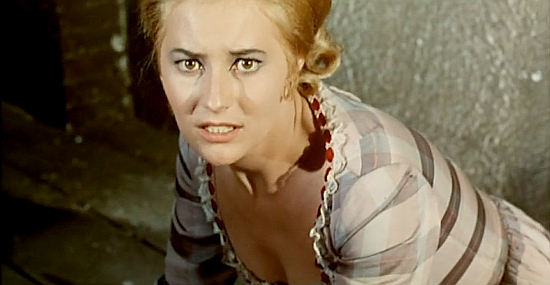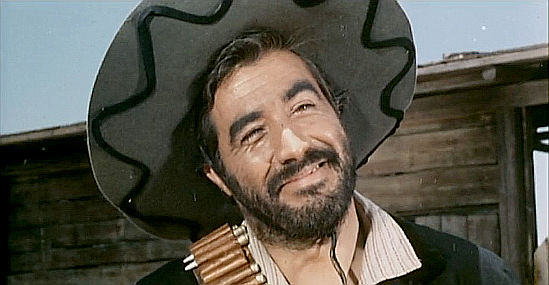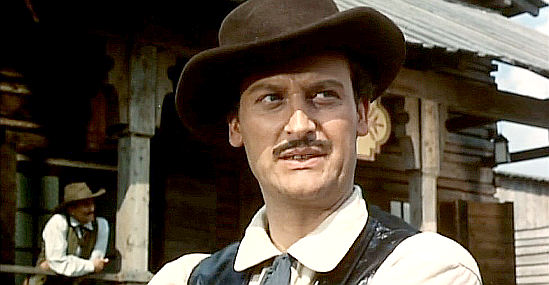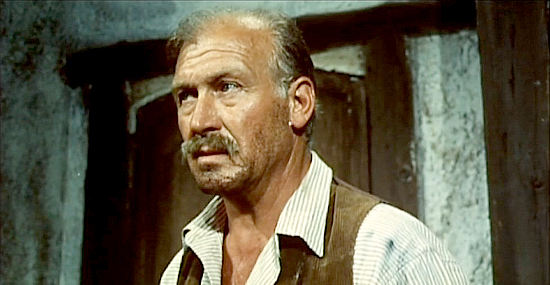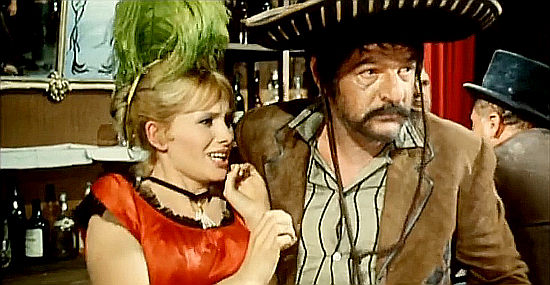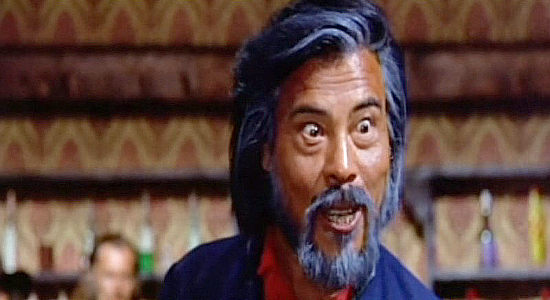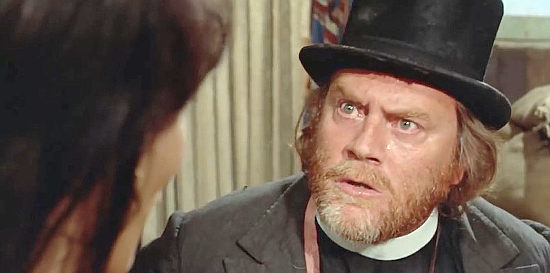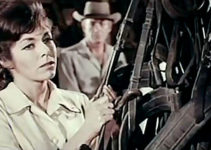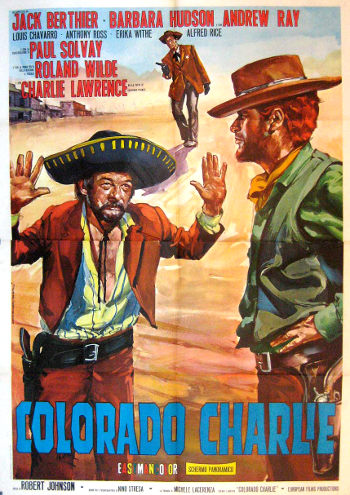 Jacques Berthier is Sheriff Wild Bill Daniels, who wants to hang up his guns, but has trouble doing so thanks to an outlaw named Colorado Charlie.
Jacques Berthier is Sheriff Wild Bill Daniels, who wants to hang up his guns, but has trouble doing so thanks to an outlaw named Colorado Charlie.
Wild Bill resigns as sheriff of Springfield so he can start a new life with his new wife Nora (Bruella Bovo) and her young son.
But no more has he left town than Colorado Charlie and his gang raid Springfield, stealing $85,000 from the cattleman’s association and killing Wild Bill’s replacement.
Much to his new wife’s dismay, that prompts Wild Bill to strap on his guns again. He manages to kill a couple of the outlaws and capture Charlie.
With that ordeal over, Wild Bill and his new family head to Little River, a town where guns aren’t allowed and where he uses a phony last name to hide his true identity.
But back in Hays City, Colorado Charlie has broken out of jail. And, this time, he figures he has a score to settle. One of the outlaws Wild Bill killed was named Dick, a man Charlie thought of as a son.
So-so early Spaghetti that at times will remind you of “High Noon” as Nora and Wild Bill debate the necessity of violence.
There’s even a pretty suspenseful build-up to the climax, with everyone waiting to see what will happen at 11 a.m. in Little River.
And then we’re rewarded with an ending that seems rather implausible considering everything we’ve seen to that point.
Better performances from all three of the leads would have helped. Let just say Bruella Bovo comes off as a wee bit melodramatic as the sheriff’s wife.
Erika Blanc, who would become a familiar face in Spaghetti Westerns, has a small role here as a saloon singer Charlie molests.
Gladys Richener plays Mary, widow of the sheriff in Springfield. She moves in with the Dander family until she recovers from her mourning.
Directed by:
Roberto Mauri
(as Robert Johnson)
Cast:
Jacques Berthier … Sheriff Wild Bill Danders
as Jack Berthier
Livio Lorenzon … Colorado Charlie
as Charlie Lawrence
Bruella Bovo … Nora Danders
as Barbara Hudson
Ugo Sasso … Tom, Nora’s dad
as Hugo Arden
Gladys Richener … Mary
Luigi Batzella … Pablo
as Paul Solvay
Gerlando Martelli … Timmy, Nora’s son
as Roland Wilde
Andrea Aureli … Judge
as Andrew Ray
Luigi Ciavarro … Pete
as Louis Chavarro
Alfredo Rizzo … Sam
as Alfred Rice
Erika Blanc … Saloon singer
as Erika Withe
Alberto Cevenini … Dick
as Anthony Ross
Mimmo Poli … Jack
as Johnny Lerman
Ferdinando Angelini … George
as Fernand Angels
Giuseppe Addobbati … Little River Sheriff Hogan
as John McDouglas
Runtime: 85 min.
aka: Un meticcio chiamato Cimitero
Music: Gioacchino Angelo
Song: “Cita a las tres” sung by Michelangelo Mignano
Memorable lines:
Nora, as Wild Bill prepares to head back to town when the new sheriff is killed: “The same thing again. Are violence and hate the only signs of manhood? … You gave me your word you were going to give up this shooting and killing.”
Colorado Charlies: “There ain’t no justice in this world. What do you mean justice? We both kill men. You, they reward. And me, they want to hang. That’s the only difference.”
Sheriff Wild Bill Dangers: “There’s one other difference — the kind of people we kill.”
Colorado Charlie, after identifying himself to the Little River sheriff: “Don’t tremble like that, sheriff. The gun might go off. You might accidentally hurt somebody.”
Trivia:
French-born Jacques Berthier enjoyed a long film career that started in the mid-1930s. He starred in two Eurowesterns, this film and 1966’s “Sheriff with the Gold.” His final Western appearance was in the 1975 comedy Western “Shoot First … Ask Questions Later” (aka “The White, the Yellow and the Black”), which starred Giuliano Gemma, Tomas Milan and Eli Wallach.
This marked the Western debut and just the second credited role for Erika Blanc, who would become a familiar face in Spaghetti Westerns. It also marked the only time she used the name Erika Withe. Her given name was Enrica Bianchi Colombatto.
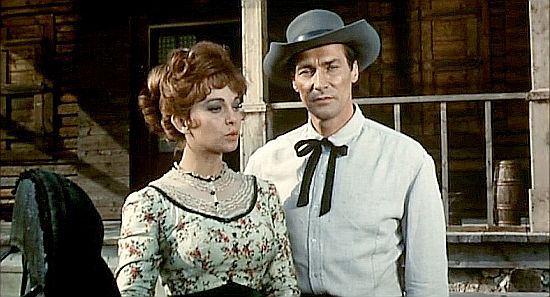
Bruella Bovo (Barbara Hudson) as Nora and Jacques Berthier as Wild Bill Danders in Colorado Charlie (1965)
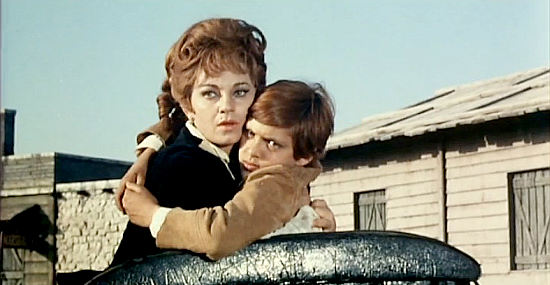
Bruella Brovo (Barbara Hudson) as Nora Danders with her son, Timmy, during a tense moment in Colorado Charlie (1965)

